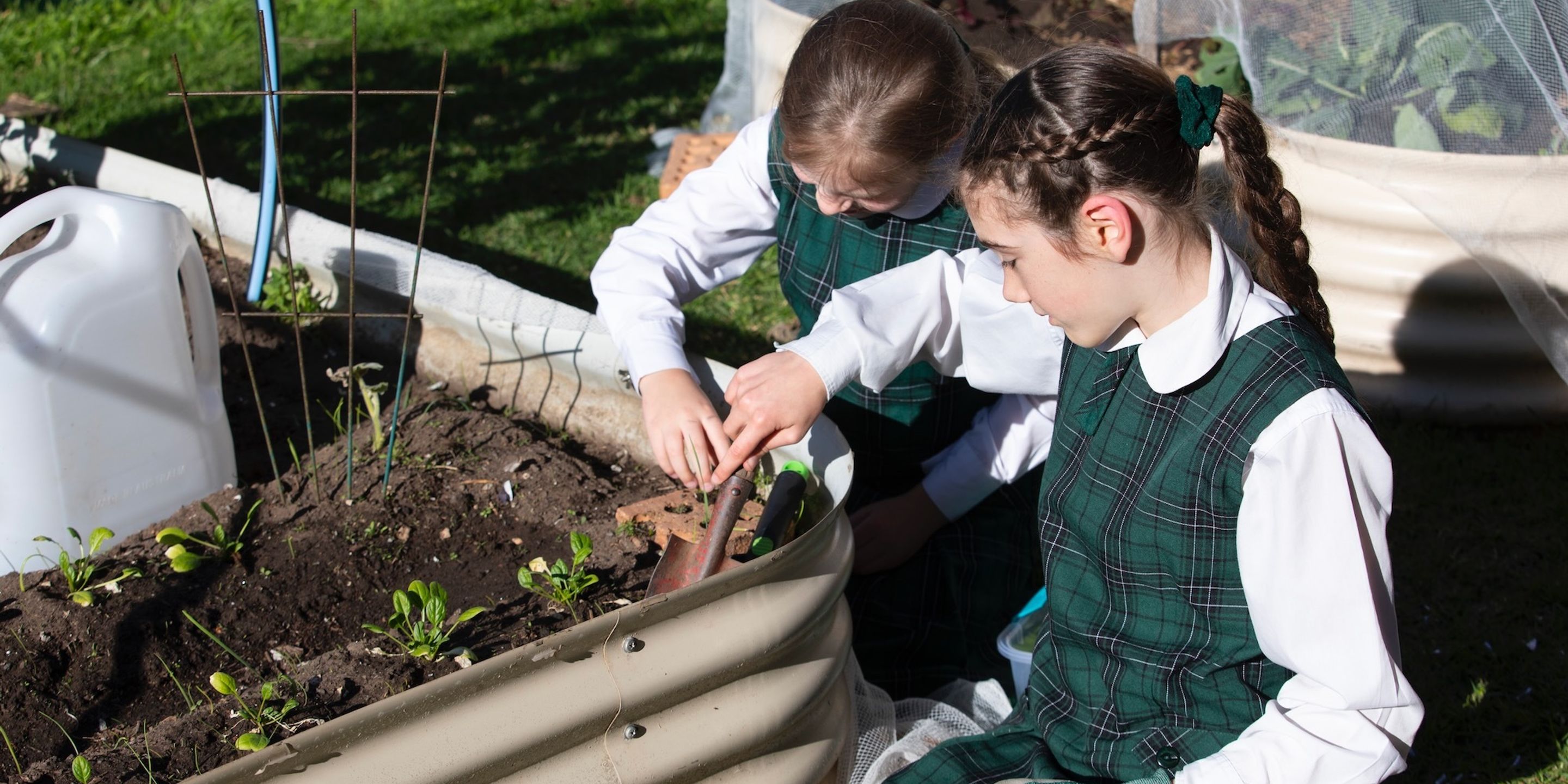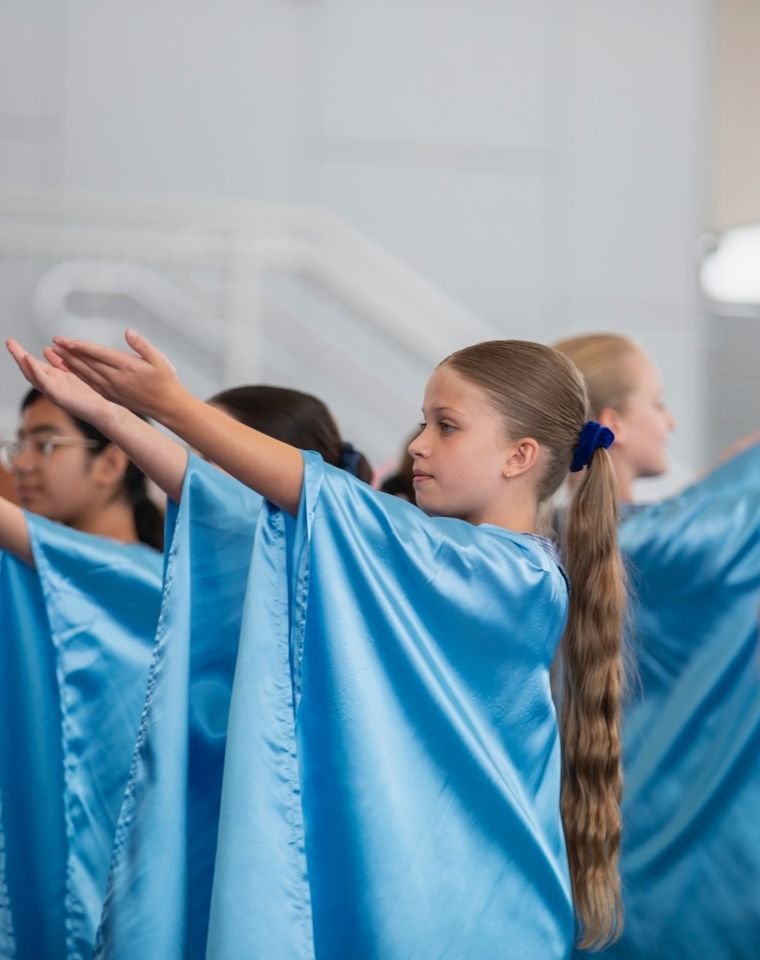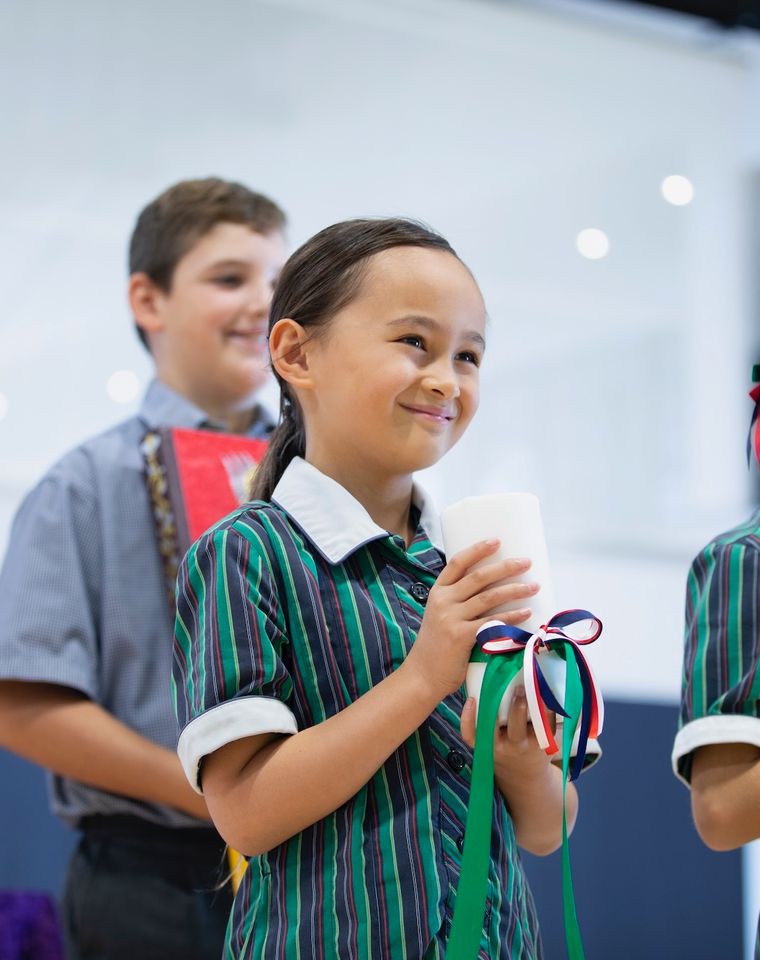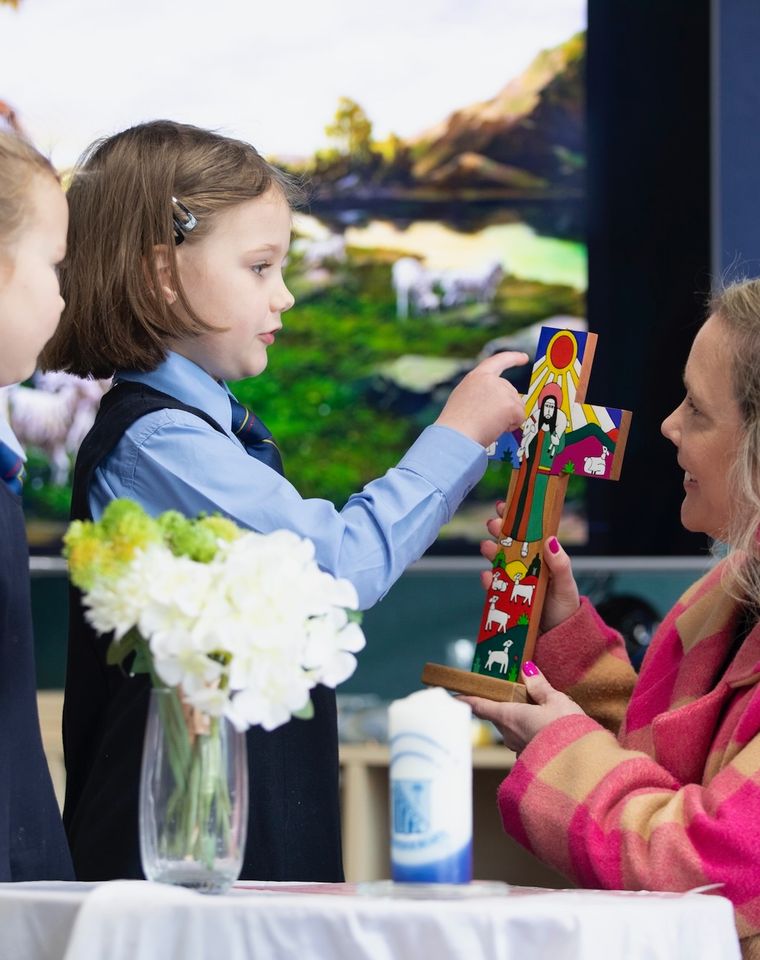The beliefs and teachings of Christianity are behind so much of what we value today: the inherent value of every person; equality regardless of differences; and love for everyone. During his time on earth, Jesus provided the perfect example of how these values can be expressed through love of God and acts of service to those most in need.
Upholding the dignity of every person is central to the principles of Catholic Social Teaching. Throughout their Catholic education, students have the opportunity to develop their leadership skills, build a values-based character, and discover their potential and calling to accompany others, especially those on the margins.









